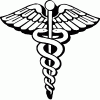The Big List of Medical Assistant Specialists

Medical assistants’ duties are as varied as the medical professionals they support. Some MAs’ responsibilities may be mostly clinical in nature, while others may be more administrative/clerical, but typically there’s a mix of the two. Before entering some fields, medical assistants may have the option of taking classes to earn certificates in their specialties, thus proving their knowledge and competency in their areas. Here’s a rundown of some of the specialist positions that medical assistants might want to explore.
Clinical:
Chiropractic Medical Assistant
Chiropractic assistants aid chiropractors in their daily routines and may be asked to document patients’ health histories, educate them on their chiropractic options, and they may even administer some physical therapy techniques if needed.
Dental Assistant
Dental assistants help dentists by sterilizing instruments, making tooth impressions, taking x-rays and acting as “extra hands” during dental procedures by passing instruments and holding suction devices.
Cardiology Technician
Cardiology technicians assist doctors with patients who are being tested for heart ailments by measuring the electrical activity in their hearts with an electrocardiograph (AKA an EKG machine).
Dialysis Technician
Dialysis technicians operate dialysis machines, which remove waste and excess fluids from the blood of patients whose kidneys do not function properly. They are responsible for cleaning and sterilizing the machine and related equipment, monitoring patients’ weight and vital signs, giving medication, collecting blood and administering catheters.
Medical Lab Assistant
Medical lab assistants aid in laboratory testing by performing routine lab tasks, primarily preparing biological specimen samples (blood, tissue, urine, skin, hair, feces, plasma, etc.).
Obstetrics/Gynecology Medical Assistant
Obstetrics/gynecology medical assistants help doctors within the OB/GYN field care for pregnant women and perform routine women’s health procedures like Pap smears, breast examinations and even minor gynecological surgery.
Occupational Therapist Assistant
Occupational therapy assistants help occupational therapists treat patients with disabilities to help them develop the ability to perform everyday tasks. This might include instructing them on methods of proper and efficient physical movement, tracking activity levels and providing encouragement.
Optometric/Opthalmic Medical Assistant
Optometric and ophthalmic medical assistants give support to ophthalmologists and optometrists, respectively, as they provide eye care to patients. Optometric assistant duties are generally related to vision exams, including preparing exam rooms and equipment, recording and measuring vision and instructing patients on how to insert and care for contact lenses. Ophthalmic assistants, meanwhile, deal more with eye surgical procedures, such as conducting pre-surgery eye tests, inserting eye drops, sterilizing surgical tools and assisting ophthalmologists during the procedure.
Pediatric Medical Assistant
Pediatric medical assistants perform many of the same tasks as normal medical assistants, but with a focus on child patients. As such, they must be skilled at handling children and putting them at ease, while also being able to deal with parents’ anxieties.
Pharmacy Technician
Under the supervision of pharmacists, pharmacy technicians take orders for prescriptions, instruct patients on prescription drug usage and measure, package, mix and dispense medications.
Phlebotomist
Phlebotomists specialize in drawing blood from patients for use in testing, transfusions or donations. This may include assembling and handling equipment, labeling and storing samples, taking vital signs and testing the blood for screening purposes.
Podiatric Medical Assistant
Podiatric medical assistants aid podiatrists in the care of patients’ feet, including taking x-rays, bandaging or making castings of feet, preparing patients for procedures by clipping toenails or washing feet and assisting podiatrists during surgery.
Administrative/Clerical:
 Medical Administrative Assistant
Medical Administrative Assistant
Medical administrative assistants handle the day-to-day clerical functions of a medical office. This may include maintaining medical files, submitting insurance claim forms, scheduling tests, bill collection and bookkeeping.
Medical Biller and Coder
Medical billers and coders ensure physicians receive payment from insurance companies for services provided to patients. Medical coders assign special codes for the procedures performed and create a claim for payment, while medical billers submit and follow up on claims so that doctors can receive reimbursement. The same person often performs both coding and billing functions.
Medical Office Receptionist
Medical office receptionists have many of the same types of duties as receptionists in non-medical settings, including answering phones, scheduling appointments, ordering and storing supplies and overseeing maintenance of equipment.
Medical Records Technician
Medical records technicians ensure the patient information in medical charts — such as symptoms, test results, medical history and treatments — is complete, accurate, accessible and secure.
Medical Transcriptionist
Medical transcriptionists listen to doctors’ voice recordings regarding the results of examinations, surgical operations or lab tests and then type them into written format for articles, letters or reports for patients’ files.







